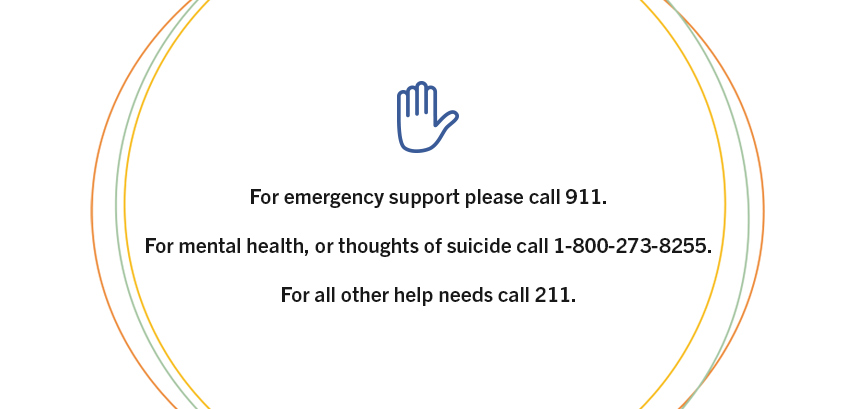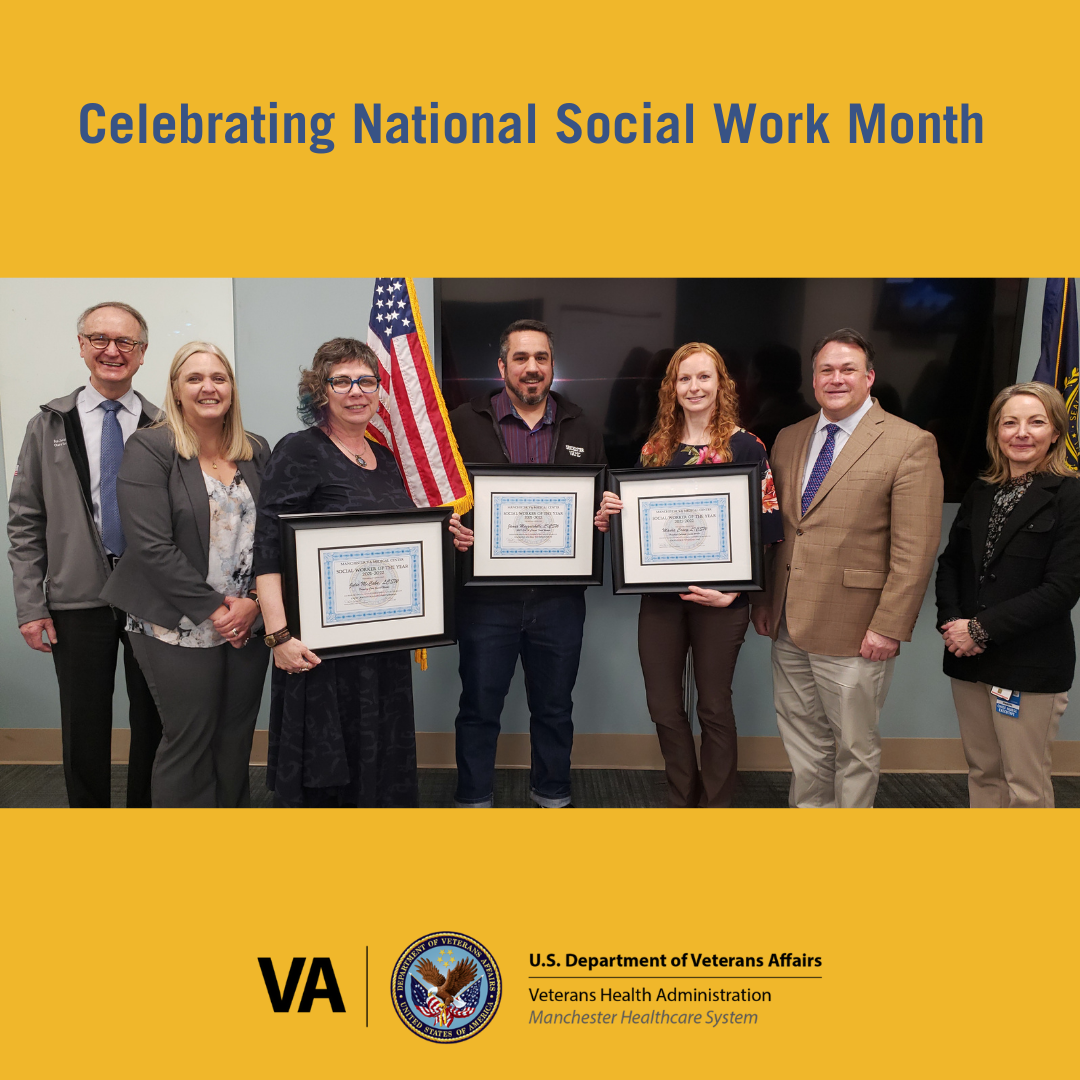March was National Social Work Month. Makin’ It Happen is grateful for all the amazing social workers that serve the Greater Manchester community and beyond. In honor of National Social Work Month, we chatted with Beth Alves, LCSW and Social Worker Supervisor at the VA in Manchester for #NationalSocialWorkMonth. Check out her answers to our questions below:
- Can you describe the VA’s mission, the kind of work you are doing in the community, and athe veterans you serve?
The VA’s mission is to fulfill President Lincoln’s promise “To care for him who shall have borne the battle, and for his widow, and his orphan” by serving and honoring the men and women who are America’s Veterans.
We serve Veterans from all eras. We know that Veterans may not receive all their care here at the VA, and we know that we cannot fulfill our mission without having strong partnerships with our community. These partnerships include supporting seamless transitions for our Veterans through transitions in care, both when the care is provided by the VA and when it is provided in the community. We also work to support our community partners so that Veterans can receive the best care possible, wherever they choose to access it. To that end, the Manchester VA hosted a Zero Suicide Academy in May of 2021, which included our community partners. We have since hosted Community of Practice meetings for organizations interested in learning more about implementing the Zero Suicide model. The Manchester VA and our partners have been able to receive technical assistance/consultation for implementation work from the Zero Suicide Institute. Internally, we have structured this work under our High Reliability Organization umbrella as “Designing for Zero.”
We also collaborate with Greater Manchester Mental Health Center in an effort to integrate the Zero Suicide framework throughout the Manchester area health system.
Our suicide prevention team provides gatekeeper trainings for interested community partners upon request and participates in the State of NH Suicide Prevention Council as well as the Military and Veterans subcommittee, the Lakes Region Veterans Coalition, and the NH Firearm Safety Coalition. Our Military 2 VA social workers provide outreach to the NH Army and Air National Guard for any Veterans transitioning to civilian life. The VA Homeless Program works closely with the NH Continuum of Care and Veteran sub-committees in the Ending Veteran Homelessness Initiative. This includes partnering with community agencies to outreach Veterans in shelters, streets, and encampments to offer housing. We also have a Veterans Community Partnership program that is in development. This is an organized partnership through which local VA facilities connect with state and local community services and agencies. We believe that getting Veterans engaged in high-quality, comprehensive health care services, such as those that the VA provides, can improve the quality of life for Veterans and can save lives, and so the VA provides multiple forms of outreach to connect with eligible Veterans and get them enrolled in care.
- How does mental health, including substance use disorders impact the veterans you work with?
Mental Health challenges are on a continuum, as we all experience stress in some form or degree. And individuals may at different times or circumstances experience significantly greater challenges that negatively affect their functioning.
Biosocial factors can impact many of us (such as a history of Adverse Childhood Experiences, neurobiological sensitivity, or living in a community experiencing an opioid epidemic).There are some factors that may be unique to Veterans, such as Post Traumatic Stress Disorder (PTSD) from combat. We need to recognize that any individual’s path into and out of mental health or substance use challenges is a unique blend of these factors.
We also know it is not just these challenges that affect our Veterans, but also stigma related to mental health and how that stigma affects access to care and the quality of care or treatment a person may receive. As part of our Designing for Zero work, the Manchester VA is working hard to move the needle on mental health stigma, including engaging clinical and non-clinical frontline staff in addressing this issue. For example, our Local Recovery Coordinator, a social worker, has been working with our Business Office to tackle this issue, and a MH Speakers Series: Stand up to Stigma, which elevates the voices of individuals with mental health lived experience, is underway. Our next speaker is Medal of Honor Recipient Ryan Pitts, and he will be speaking on his experiences of service and Recovery.
Recovery is always possible; what that looks like for different individuals may vary; however, the possibility of recovery does not.
- It is National Social Work Month and the VA is one of the largest employers of social workers in the nation. Why is it so important to have social workers at the forefront of your work?
Social work training prepares social workers to focus on both the person and their environment, and to truly join with people where they are at in order to enhance well-being and help meet both basic and complex needs. Having social workers at the forefront of VA care allows Veterans, families, and caregivers to access support in addressing the social determinants of health challenges.
Social work is also important because of the versatility and flexibility that the profession provides. Social Workers provide essential services in so many different areas to a wide variety of patients. They help with preventative care, crisis intervention, identification of Recovery goals, skills development, offer support to meet those goals and maintain them.
- What types of social workers are at the VA and what type of services do they offer?
Social workers provide services in a wide variety of settings, including primary care, geriatrics and extended care, homeless services, caregiver support services, mental health, and other specialty services such as the spinal cord injury clinic, the traumatic brain injury clinic, oncology, intimate partner violence (IPV) services, and the visual impairment services team.
Social workers in our Mental Health Clinic also provide individual, group, and family therapy. Social workers provide assessment, crisis intervention, high-risk screening, discharge planning, case management, advocacy, and psychotherapy, while also playing critical roles in the COVID-19 pandemic response. Social workers are actively leading efforts at all levels of the VA – national, regional, and local – to address Inclusion, Diversity, Equity and Access for all.
- This year’s theme for National Social Work Month is ‘the need for social workers is great’. Can you speak to how the VA is addressing the need for social workers?
The VA operates the largest and most comprehensive clinical training program for social workers. The VA is affiliated with over 230 graduate schools of social work and trains approximately 1500 Master of Social Work interns a year!
In Manchester, social work interns are vibrant members of our team, bringing fresh perspectives and a variety of experiences to their internships. Like many other organizations, we are working hard to recruit and retain an engaged, talented social work workforce. To support recruitment, we offer a competitive salary and, for some positions, acceptance into the Education Debt Reduction Program (EDRP).
To support workforce retention, we have worked hard to increase growth opportunities at all levels, in a range of services and programs. At Manchester VA, we offer an environment that encourages innovation and process improvement. There are many professional development and continuing education opportunities.
Last Friday we hosted a wonderful social work conference: We Are Stronger Together. The conference included topics chosen by our social work team, including having difficult conversations; diversity and inclusion: organizational culture and ways to become more inclusive in our workplace; and effective communication strategies for healthcare teams.
During the conference we honored our three social workers of the year in the areas of excellence in patient care, excellence in innovation and process improvement, and excellence in building partnerships.



